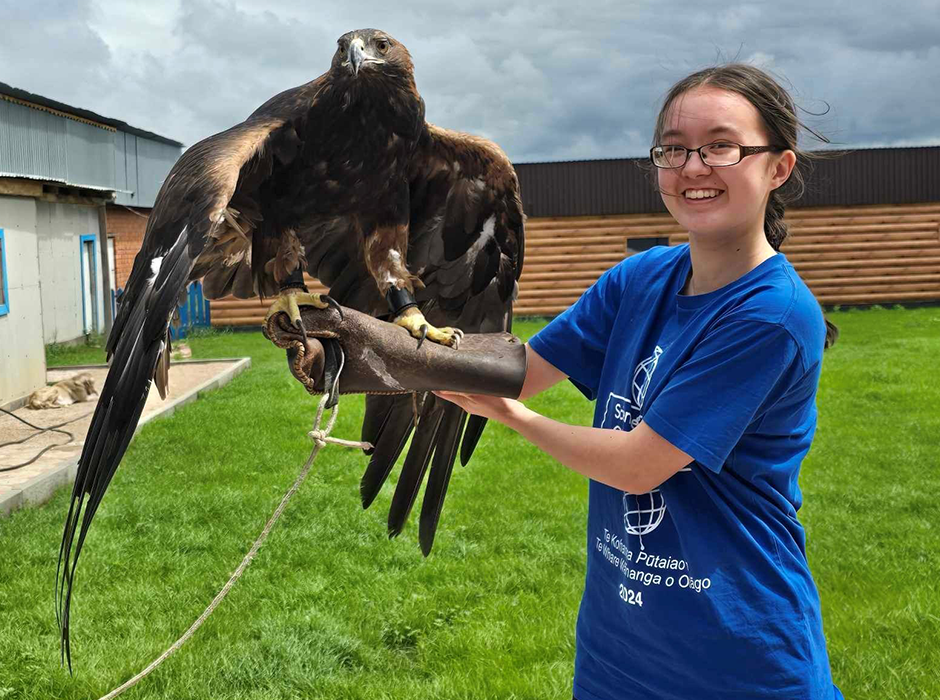
Anika Hayes at the International Biology Olympiad in Kazakhsta where she took the opportunity to get up close and personal with this "amazing and powerful"eagle.
Anika Hayes had the perfect excuse for missing the second week-long Science Academy camp held recently on campus – she was representing New Zealand at the International Biology Olympiad (IBO) in Kazakhstan.
Attended by the world’s top biology high school students from 80 countries, Anika was one of four Year 13 students selected for the New Zealand team at the IBO.
Anika, a final year student at Waitaki Girls High School, says “it was a huge surprise when I found out I had been selected, but also a once in a lifetime opportunity that I’m so grateful for.”
She’d certainly earned her place in the team with rigorous preparation, including nine months studying university first-year level biology and training online with the rest of the Kiwi team.
Out of 286 competitors at the IBO, Anika finished in 88th place which earned her a bronze medal that she says is “pretty cool”.
This year Anika is attending Otago’s Science Academy, a programme for potentially high achieving Year 13 science students attending rural, provincial, or small schools.
She says the Science Academy is a really good programme for supporting students who have potential but not access to additional resources and support.
“I think Academy has been super helpful as some of the skills I learned in the January camp came in handy during the team selection and IBO exams,” Anika says.
“It gave me a bit of a head start and helped me discover there’s more to STEM than just what you learn at school.
“It’s really cool to learn new things you haven’t done before, like doing experiments in the university laboratories or going to the New Zealand Marine Studies Centre.”
Anika says her favourite part of the Kazakhstan trip was meeting other young people with similar interests from all around the world.
“I think generally science and maths Olympiads attract students from schools with extra resources, but it can be difficult for students who have the potential but unfortunately not the same level of support.
“So for me, just getting into IBO shows that students from small and rural schools can do just as well as those from bigger schools.”
Science Academy Director Steve Broni says it’s fantastic to see high school students like Anika succeeding in science on the world stage.
“Anika’s selection for the New Zealand team is evidence that we have high achievers in our rural and provincial schools that just need that spring board of additional support which sits at the core of Science Academy,” Steve says.
Looking ahead to life after school, Anika is planning to come to Otago next year and study Health Science First Year.
“I enjoy all the sciences but especially biology as it makes sense to me and covers a wide variety of topics from biochemistry and microbiology, to animals and plants, genetics and DNA, and then of course humans,” Anika says.
She’s also looking forward to catching up with new friends she’s met through Science Academy.
“I think one of the best things about the Academy is meeting others with similar interests and who are in similar situations. It helps builds connections and sets you up well for university as you already know some people before you even start.”
Kōrero by Guy Frederick, Communications Adviser (Sciences)